Directory
- Share
Daniel Lam
- Alumni
- South Africa
- 2006 PhD Clinical Biochemistry
- Fitzwilliam College
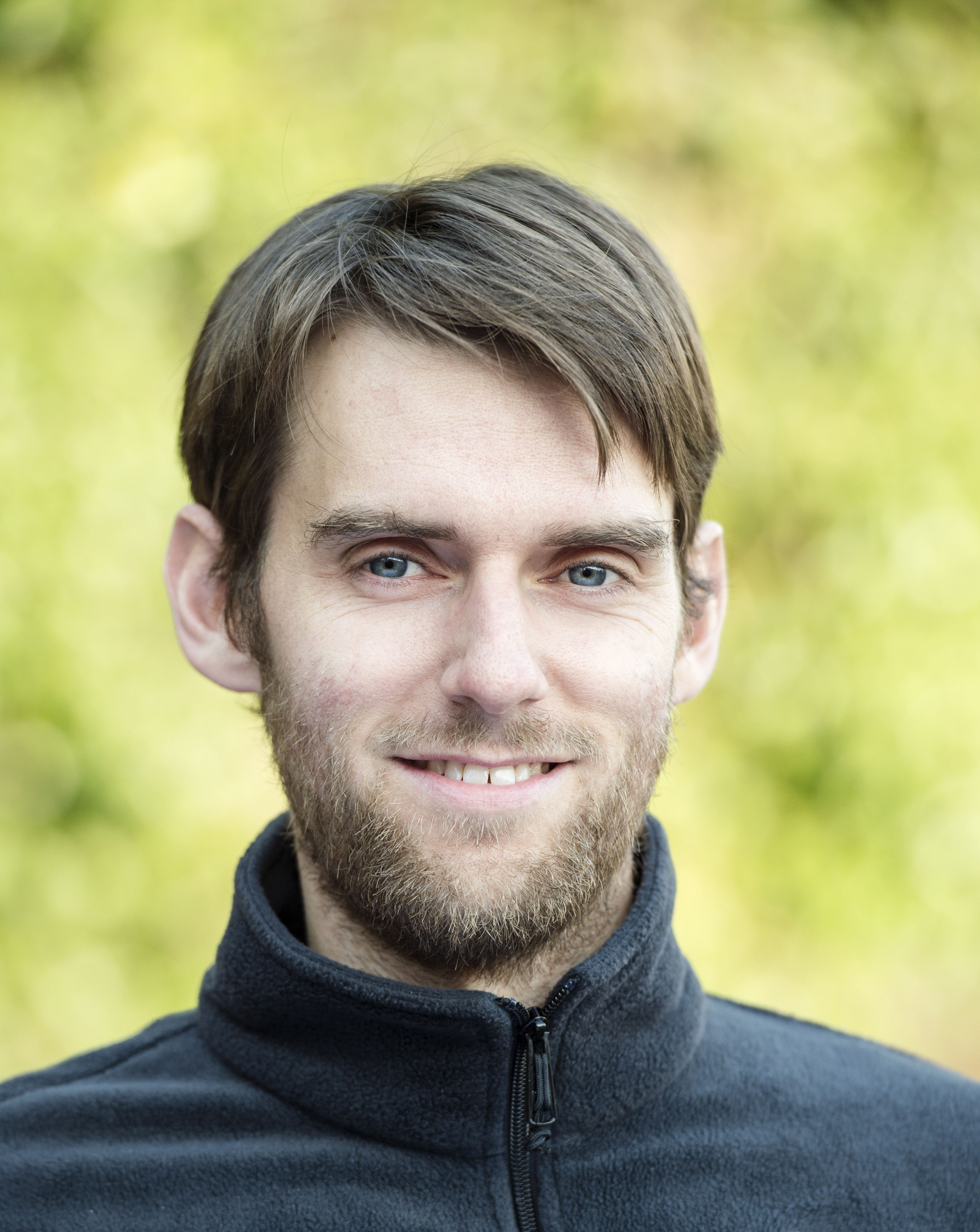
Daniel Lam
- Alumni
- South Africa
- 2006 PhD Clinical Biochemistry
- Fitzwilliam College
I am now a Principal Scientist in Computational Biology at Boehringer Ingelheim, focussing on cardiometabolic disease.
Anthony Lamb
- Alumni
- Australia
- 2012 PhD Zoology
- Trinity Hall

Anthony Lamb
- Alumni
- Australia
- 2012 PhD Zoology
- Trinity Hall
I have bachelor degrees in physics, mathematics and engineering and some experience working in the finance sector. I hope that this varied background will prove useful at Cambridge where I am taking a PhD in conservation science, with a focus on the environmental impact of farming. With global demand for food forecast to double by 2050, it is important to consider both the environmental and social impacts of increasing agricultural production. This is particularly the case in developing countries, where environmental degradation can impose a significant social cost. My research therefore focuses on ways to meet increasing food demand at least cost to the environment.
Fabre Lambeau
- Alumni
- Belgium
- 2001 PhD Comp Speech & Language Processing
- St Edmund's College

Fabre Lambeau
- Alumni
- Belgium
- 2001 PhD Comp Speech & Language Processing
- St Edmund's College
Devinn Lambert
- Alumni
- United States
- 2013 MPhil Biological Science (Plant Sciences)
- Churchill College
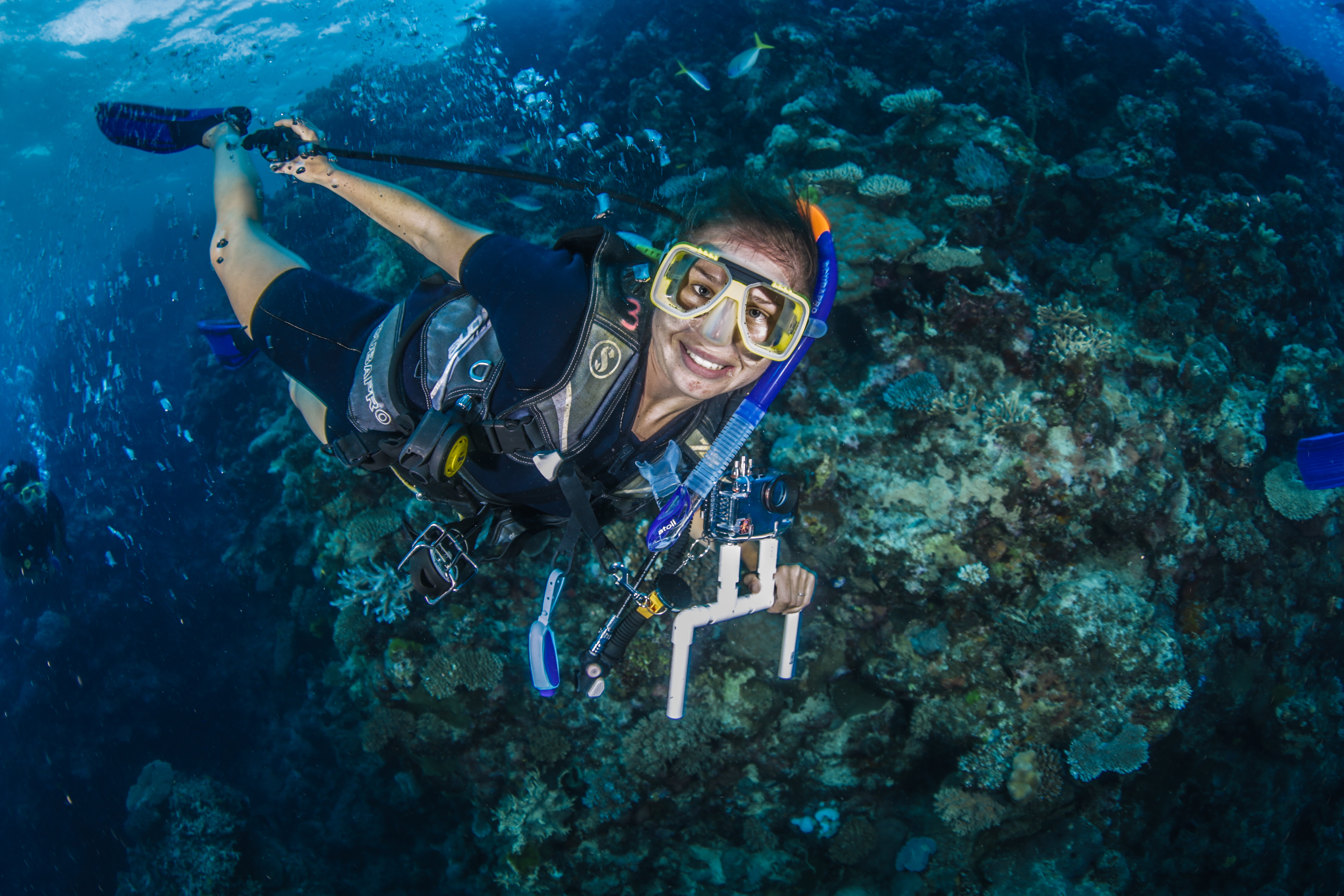
Devinn Lambert
- Alumni
- United States
- 2013 MPhil Biological Science (Plant Sciences)
- Churchill College
I am an innovative leader and inquisitive scientist who derives energy from solving problems, communicating science, and growing networks and opportunities. I have excelled at leading multiple organizations and communities, while excelling in my education and research. I am fortunate to have had my dedication to serving the public and understanding of science recognized my multiple national and international awards. In my career, I seek to continue to combine my scientific background with leading projects and helping the public.
Previous Education
Rutgers University BSc Biotechnology 2009
Links
http://www.energy.gov/eere/bioenergy/bioenergy-technologies-office
http://www.linkedin.com/in/devinnlambert
Hasina Lamichhane
- Alumni
- Nepal
- 2022 LLM Law
- Hughes Hall
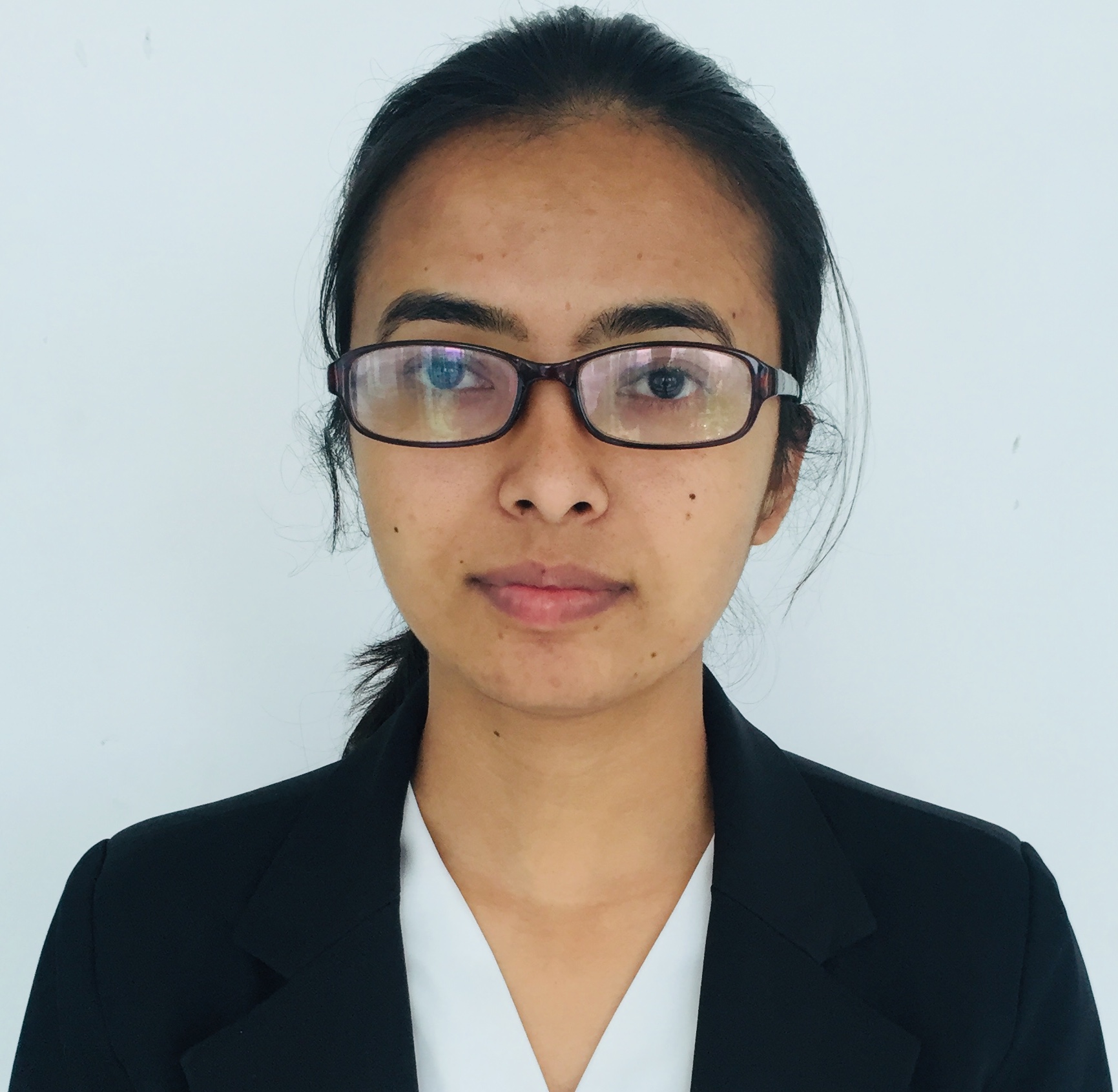
Hasina Lamichhane
- Alumni
- Nepal
- 2022 LLM Law
- Hughes Hall
I grew up reading Nepal as a "small poor landlocked country" in school textbooks, and as an adult, I have lived to witness the vulnerability of actually living in a developing country. After completing my undergraduate in law (B.A. LL.B.) from Tribhuvan University, I had opportunities to work with law firms and research groups which navigated me with possible directions to contribute to the economic prosperity of the country as a legal practitioner. With my experience of working alongside young entrepreneurs, local businesses, and foreign investors, I learned the prospects of investing capital, utilizing resources, and creating opportunities in development sectors. I aspire to be part of this larger effort to change the fate of the remittance and aid-driven economy of Nepal. At the University of Cambridge, I will study Master of Law with a particular focus on corporate governance, investment law, and international commercial litigation which I will use to fill in the existing gap in commercial legal practice in Nepal and add experience to Nepali university education. It is an immense honor to be a part of the Gates Cambridge community and I hope to make a difference.
Previous Education
Tribhuvan University B.A.LL.B. 2019
Willa Lane
- Scholar
- United States
- 2023 PhD Psychology
- St John's College
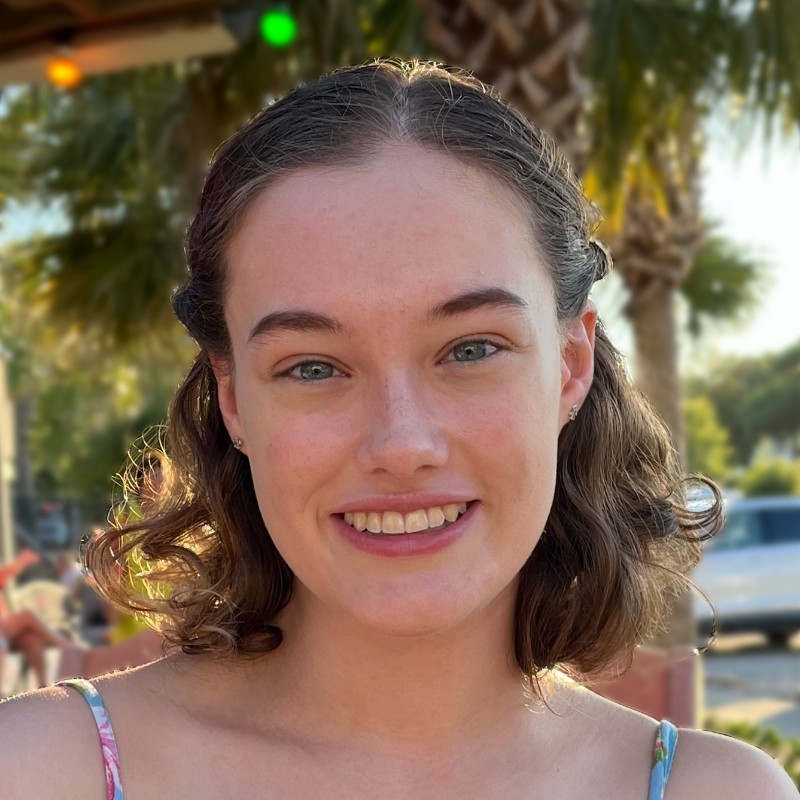
Willa Lane
- Scholar
- United States
- 2023 PhD Psychology
- St John's College
I'm a PhD student studying animal cognition as a member of the Comparative Cognition Lab at the University of Cambridge. My work focuses on cognitive processes such as learning and memory in cuttlefish (marine invertebrates that are closely related to octopus and squid). As an undergraduate at the University of Delaware, I earned an honors BS in marine science with a psychology minor. I researched topics including algal-invertebrate symbioses and the human memory error of boundary extension. I also researched shrimp population dynamics to inform fishery management as a 2021 NOAA Hollings Scholar. As a member of the Gates Cambridge Community, I look forward to initiating broad dialogues about who and what we consider “smart,” providing scientific support for animal welfare policy, and highlighting the remarkable cognitive complexity of marine life to inspire public stewardship of our oceans.
Previous Education
University of Delaware Marine Science 2023
Andrew Lang
- Alumni
- Australia
- 2001 PhD Legal Studies
- Trinity Hall

Andrew Lang
- Alumni
- Australia
- 2001 PhD Legal Studies
- Trinity Hall
Cameron Langford
- Alumni
- United States
- 2015 MPhil Political Thought + Int Hist
- Christ's College
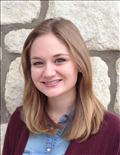
Cameron Langford
- Alumni
- United States
- 2015 MPhil Political Thought + Int Hist
- Christ's College
I am interested in how political ideas play out in past and present. As an MPhil student in the interdisciplinary program in Political Thought and Intellectual History, I hope to explore the contexts in which particular political philosophies unfolded as well as the ways in which those philosophies influenced history by empowering people to act. As an intern on Hillary Clinton's 2016 campaign and in the White House Office of Presidential Correspondence, I saw firsthand how framing ideas in new ways can lead to a more informed and engaged citizenry. I ultimately hope to use these academic and policy experiences to serve as a communicator between policymakers and citizens, using the power of narrative and my background as both a historian and creative writer to close the gap between individuals and their government.
Previous Education
Princeton University
Fabrice Langrognet
- Alumni
- France
- 2014 PhD History
- St John's College
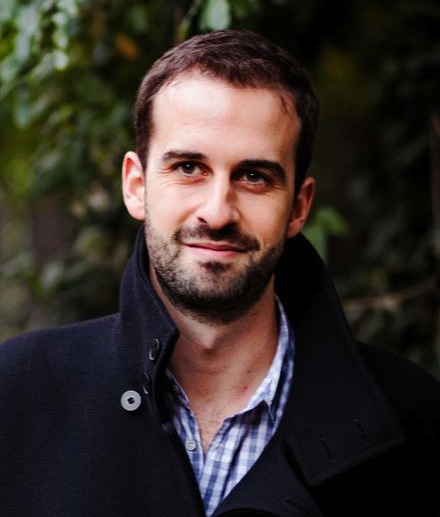
Fabrice Langrognet
- Alumni
- France
- 2014 PhD History
- St John's College
Before studying migration history at Cambridge, I served for almost five years as a judge in the administrative branch of the French judiciary. I specialized in immigration and asylum cases, a field I had previously discovered as a volunteer in French NGOs providing help to asylum seekers. In addition, I have also worked as a speechwriter for the President of the French Republic, as a member of the editorial board of an international affairs newsmagazine, and as an adjunct lecturer at Sciences-Po, ENS and other French universities.
After completing my Ph.D. at Cambridge (2019), I joined a Paris research lab called the Centre d'histoire sociale des mondes contemporains (University of Paris 1/CNRS) as an associate researcher. I was then a visiting researcher and Fung global fellow at Princeton University (2020-2021), before joining the University of Oxford in 2021 as a Leverhulme Early Career fellow at the Faculty of History and a William Golding JRF at Brasenose colllege. I am also a fellow at the Institut Convergences Migrations (Paris) and at the Global Public Policy Institute (Berlin).
My publications include a monograph, published in English as Neighbours of Passage: A Microhistory of Migrants in a Paris Tenement, 1882-1932 (Routledge, 2022), and in French as Voisins de passage. Une microhistoire des migrations (La Découverte, 2023).
Juliet Lapidos
- Alumni
- United States
- 2005 MPhil English Studies
- Hughes Hall

Juliet Lapidos
- Alumni
- United States
- 2005 MPhil English Studies
- Hughes Hall
I'm studying eighteenth-century British novels.
David Larkin
- Alumni
- Ireland
- 2002 PhD Music
- Christ's College

David Larkin
- Alumni
- Ireland
- 2002 PhD Music
- Christ's College
Cristian Larroulet Philippi
- Alumni
- Chile, France
- 2019 PhD History and Philosophy of Science
- St Edmund's College
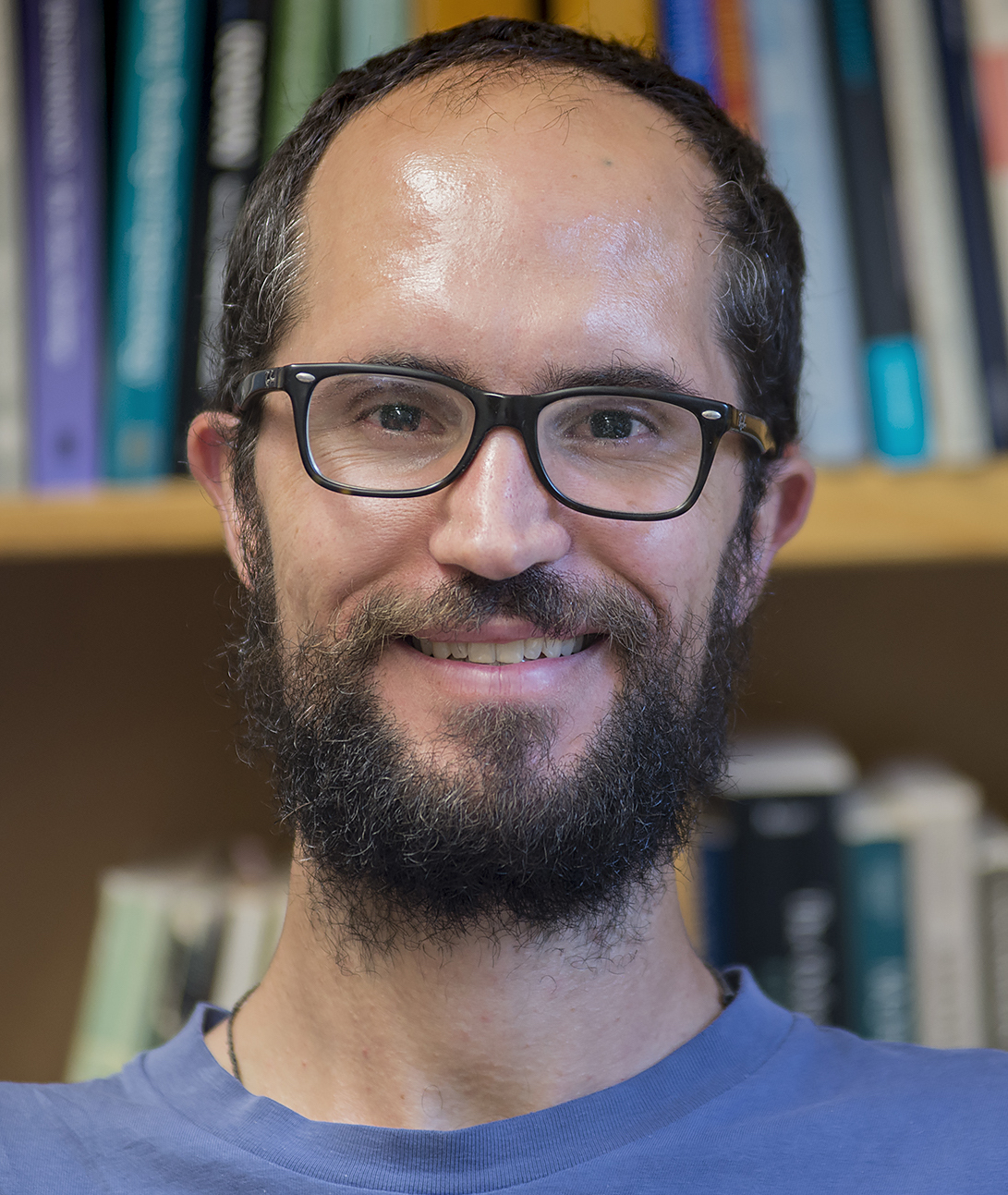
Cristian Larroulet Philippi
- Alumni
- Chile, France
- 2019 PhD History and Philosophy of Science
- St Edmund's College
I was born and raised in Chile. There I studied mostly economics, but also quite a bit of sociology, and philosophy. I worked then as a researcher in policy-relevant areas of economics (at J-PAL) both in Chile and in India, and I also taught philosophy of science and economics in Chile. I decided to bring those interests closer together by studying philosophy of the social sciences at the LSE. I look forward now to continue doing so in my Ph.D. at Cambridge HPS. My goal is to develop rigorous philosophical analyses of the theoretical and normative aspects of science, with a special focus on the social sciences. I expect this research to inform not only internal debates in philosophy of science, but also in economics, and in the interdisciplinary debates that surround public policy disputes.
Previous Education
University of Colorado at Boulder Philosophy 2022
London School of Economics & Political Science (Un Philosophy of the Social Scien 2016
Pontificia Universidad Catolica de Chile (Catholic Economics 2011
Ryan Lash
- Alumni
- United States
- 2010 MPhil Anglo-Saxon, Norse and Celtic
- Gonville and Caius College
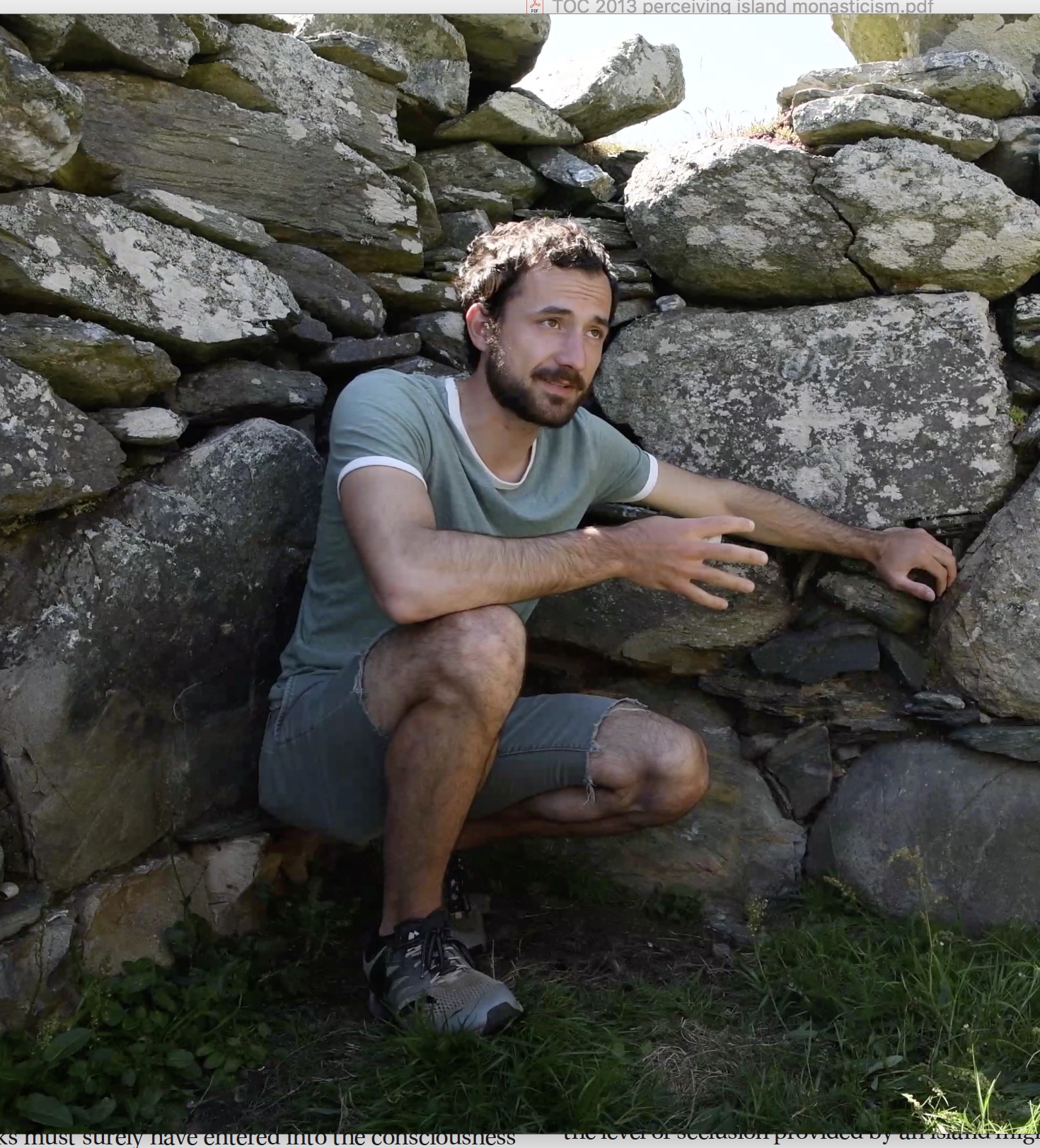
Ryan Lash
- Alumni
- United States
- 2010 MPhil Anglo-Saxon, Norse and Celtic
- Gonville and Caius College
My research examines how multi-sensory encounters with landscapes shape people’s perceptions of heritage, belonging, and social difference. As a member of the Cultural Landscapes of the Irish Coast (CLIC) Project since 2007, I have undertaken archaeological and ethnographic research on the islands of Inishark and Inishbofin, Co. Galway, on topics ranging from early medieval monasticism and pilgrimage traditions, pastoralism, heritage tourism, and sustainability. Myself and colleagues have published research results in Antiquity, Medieval Archaeology, The Journal of Social Archaeology, and the Routledge Handbook of Sensory Archaeology.
As a postdoctoral fellow at Notre Dame, I am working with Dr. Ian Kuijt on the book project Faith Along the Water, which traces the expansion and development of monastic settlements across the seascape of Connemara c. 650-1300 CE.
Previous Education
University of Notre Dame
Franziska Lautenschläger
- Alumni
- Germany
- 2007 PhD Physics
- Clare College
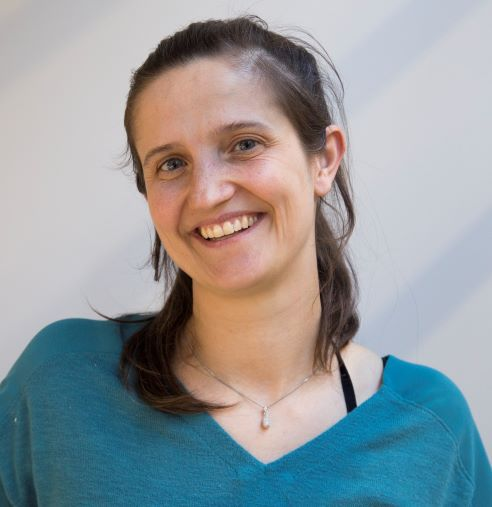
Franziska Lautenschläger
- Alumni
- Germany
- 2007 PhD Physics
- Clare College
Cambridge! What an opportunity to pass my PhD at this university, where so many great physicists have left their footprints. And since biotechnology, cancer-, and stem cell research are present almost everywhere in Cambridge, this is a near perfect environment to study such an interdisciplinary field as biophysics. Therefore, I investigated the mechanical properties of stem cells by stretching them with the help of laser light. I am now in my 4th year in Cambridge and about to write down all the research I have done during this exciting time.
Previous Education
University of Leipzig
Links
http://www.leibniz-inm.de/en/research/bio-interfaces/cytoskeletal-fibers
http://www.lautenschlaeger.uni-saarland.de
Joshua Law
- Alumni
- United States
- 2019 MPhil Health, Medicine, and Society
- Darwin College
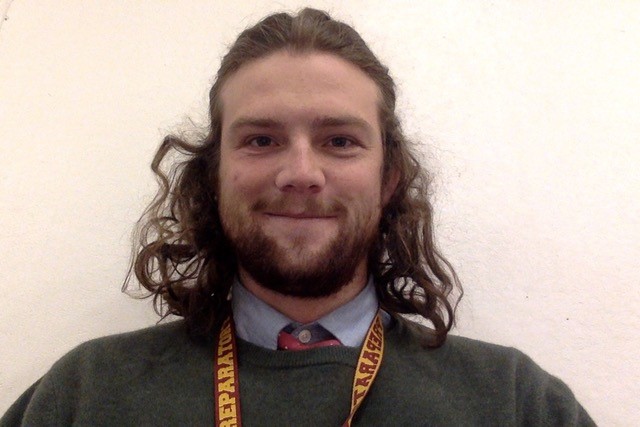
Joshua Law
- Alumni
- United States
- 2019 MPhil Health, Medicine, and Society
- Darwin College
I was raised near Birmingham, Alabama, where I first grasped at the mystery of human experience and the beauty of devotion to a higher cause. I spent four meaningful years at The University of Mississippi, earning a BA in Religious Studies with minors in Biology and Chemistry. My undergraduate research exploring the gendered world of ancient medicine was published by the Journal of Theta Alpha Kappa, and my senior thesis utilized a case study analysis to demonstrate the impact of western masculinity upon historical Jesus studies. Since my graduation from University, I have been teaching science in middle schools and caretaking for individuals with disabilities. As I undertake an MPhil in Health, Medicine, and Society at Cambridge, I hope to deepen my understanding of health systems in order to prepare myself for a career in public health advocacy. I am honored to join the Gates Cambridge community and look forward to a lifetime of listening and learning that might improve the lives of others.
Previous Education
University of Mississippi B.A. in Religious Studies 2018
Ryan Mian Chien Law
- Scholar
- Malaysia
- 2022 PhD Medical Science @ MRC Cognition and Brain Sciences Unit
- St Catharine's College
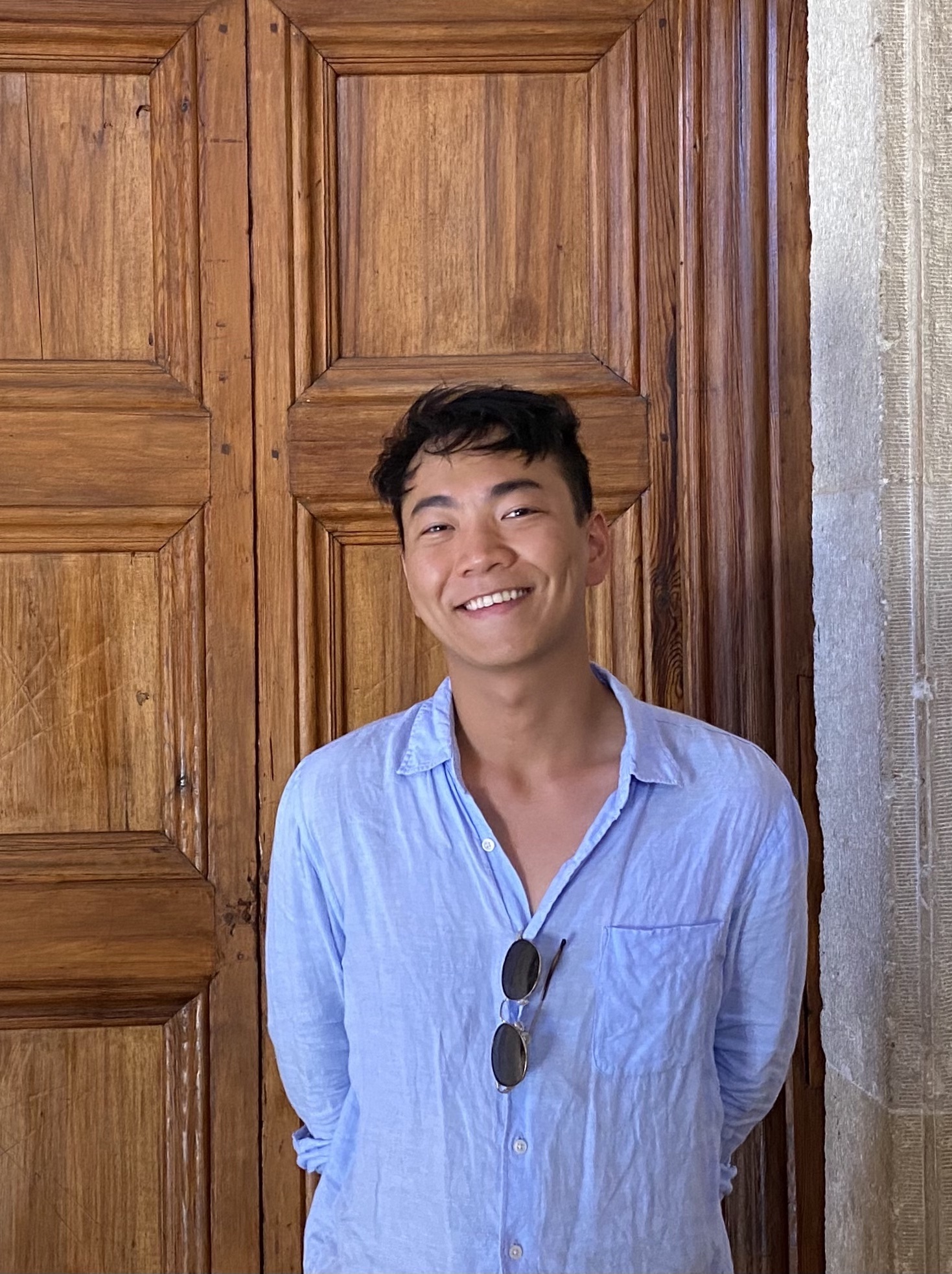
Ryan Mian Chien Law
- Scholar
- Malaysia
- 2022 PhD Medical Science @ MRC Cognition and Brain Sciences Unit
- St Catharine's College
I was raised in Malaysian Borneo, a linguistically heterogeneous environment that exposed me to a plethora of linguistic phenomena. I sought explanations by exploring different facets of language research at UCL, Harvard University, New York University, and the Max Planck Institute for Psycholinguistics. Throughout my education and research, I immersed myself in the psychology, philosophy, development, and neuroscience of language. My PhD seeks to expand our understanding on the neural bases of meaning composition, our striking capacity to combine simple concepts into more complex ones. A substantial focus of this work would be to better understand this capacity in relatively natural contexts, such as audiobook listening. Such tasks are particularly suitable for certain populations such as children on the autism spectrum or individuals with acquired brain injury, for whom standard experimental tasks might not be appropriate. I am privileged to have mentors who continue to inspire, encourage, and support me in my academic pursuit. I am committed to promoting access to and belongingness in higher education and academia. I am keen on building capacity in this space within the Gates Community and beyond.
Previous Education
Radboud University Nijmegen Cognitive Neuroscience 2022
University College London Linguistics 2018
Joanna Lawrence
- Alumni
- United States
- 2016 PhD Archaeology
- Trinity Hall
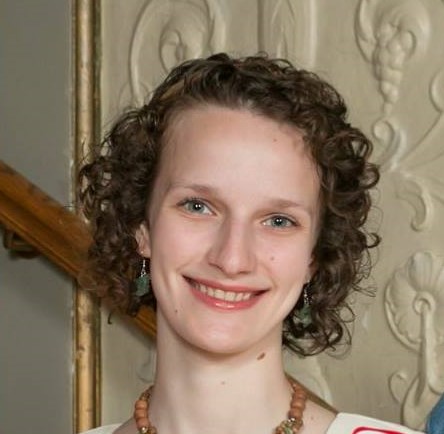
Joanna Lawrence
- Alumni
- United States
- 2016 PhD Archaeology
- Trinity Hall
I developed an interest in archaeology as an undergraduate student at the University of Wisconsin. After I withdrew from my former career as a ballet dancer, my passion to create physical expressions of myself found satisfaction in uncovering the memories of selves expressed in the physical objects they left behind.As an archaeologist, I am interested in the everyday experiences of Bronze Age people in northern Europe. In my career, I plan to explore their personal and community identities, settlements and households, social organizations, engagements with material culture, and ideologies of gender and sexuality.My PhD research examines human conceptualizations of non-human animals through the Bronze Age rock carvings from southern Scandinavia. Some of the broader questions I hope to answer include whether animals were viewed as having agency in the past, how animals fit within the networks of Bronze Age society, how people were perceived as being similar to and different from animals, whether some animals were special kind of beings, and what the implications of my research are for human-animal interactions and relationships in practice in Bronze Age Sweden. Ideally, my project will provide a foundation for further works thinking about society in practice through prehistoric art, and about the roles of animals in prehistory.I am thrilled for the opportunity to share my passion for archaeology with academic and public audiences as a Gates Cambridge Scholar, and to continue my graduate education at the University of Cambridge. I hope to inspire in others an appreciation for the beautiful diversity of humanity throughout the millennia. I am honored to also be a 2013 Beinecke Scholar.
Previous Education
University of Wisconsin Madison
University of Cambridge
Rian Lawrence
- Alumni
- United States
- 2017 MPhil Medical Science
- Murray Edwards College (New Hall)

Rian Lawrence
- Alumni
- United States
- 2017 MPhil Medical Science
- Murray Edwards College (New Hall)
I grew up enjoying the outdoors in my Utah rodeo hometown, which led to pursuing a BSc in Environmental Science at Antioch College in Ohio. Through research experience in water and soil quality across the U.S.A. and in Ghana, I became interested in the intersection between policy and science internationally. As a result, I obtained an emphasis with my BSc in the Spanish language and worked for the U.S. Department of State in Bolivia, Washington D.C., and Sri Lanka. During my PhD in Public Health, I seek to better understand the environmental determination of arsenic and heavy metals in cardiovascular disease risk. In a team of international collaborators, I will characterize toxic element exposure in Bangladesh and Malaysia as well as investigate the association between these exposures and cardiovascular disease. I am honored to participate in the Gates Cambridge Program and be among peers with a similar passion for utilizing academic research to protect Earth’s health and the well-being of all.
Previous Education
Antioch College








